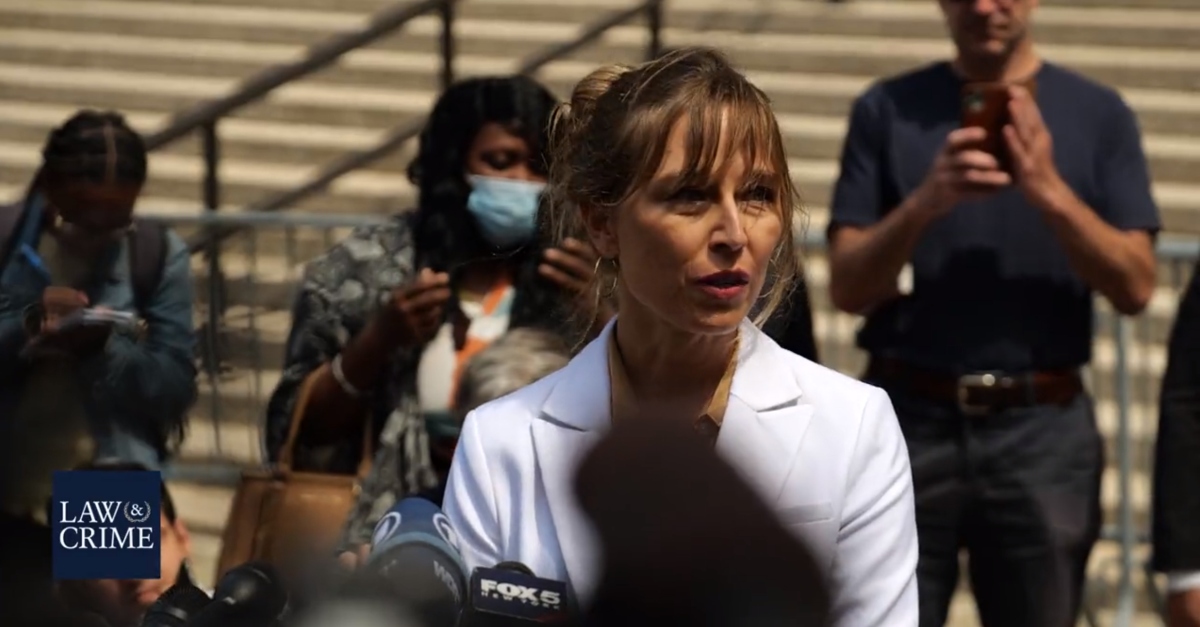
Annie Farmer
One of the women sexually abused by Jeffrey Epstein and Ghislaine Maxwell voiced hope that Maxwell’s 20-year sentence for sex trafficking will lead to change — and perhaps new answers as to why the prolific sexual predators were able to get away with abusing young girls for so long.
“The truth about these crimes, about child sexual abuse and exploitation, are deeply uncomfortable,” said Annie Farmer, one of the four women who testified in Maxwell’s federal trial. “They happen more frequently than we want to acknowledge and often perpetrators, as we saw in this case, are not strangers in vans. They’re the people that live in our communities, and they’re people often in positions of power.”
“Maxwell and Epstein were predators who were able to use that power and privilege to harm countless individuals and for far too long the institutions that should be protecting the public were instead protecting them, and I still hope we find out more about how that was allowed to occur. We know that historically, though, that this has happened in many organizations, in many institutions, that predators are protected,” Farmer continued. “In churches. In political groups. In the foster care system. And so I just hope that this sentence can be another sign that voices are coming together and saying, ‘No more.’ If you commit these crimes, you will be punished. If you facilitate these crimes, you will be punished. If you are a bystander that looks the other way, you will not be allowed to hold a position of power.”
Maxwell, 60, was sentenced on Tuesday to 20 years in a federal prison, just as probation authorities recommended. That’s below the prosecution’s request of a sentence between 30 and 55 years, but also well above the defense’s request for four to five years behind bars.
Prosecutors said that they found this photograph of Jeffrey Epstein and Ghislaine Maxwell during the 2019 raid on Epstein’s New York townhouse.
Maxwell’s team argued that she was just a scapegoat for Epstein, who authorities say died at 66 by suicide while in a Manhattan federal jail. He previously pleaded guilty in Florida state court to soliciting prostitution from a minor. This was a sweetheart deal, considering evidence that Epstein abused many young girls in 2008. Alexander Acosta, then U.S. Attorney for the Southern District of Florida, declined to press charges, though federal prosecutors drafted a 53-page indictment.
Four women testified at Maxwell’s trial, though the three besides Farmer used either just their first name or a pseudonym.
A woman who went by Carolyn said that Maxwell touched her breasts and saw her naked about 30 times in Epstein’s massage room from the age of 14. Farmer said that when she was 16 years old Maxwell subjected her to a topless massage at Epstein’s New Mexico ranch. She also said that Epstein caressed her hand, arm, shoe, foot, and leg after bringing her and her older sister Maria Farmer to a production of the play “Phantom of the Opera.”
Others who did not testify nonetheless submitted victim impact statements. This included Virginia Roberts Giuffre, who ripped into Maxwell, saying the defendant procured her for Epstein before the pair abused her for the first time.
Maxwell also made a statement of her own.
“It is the greatest regret of my life that I ever met Jeffrey Epstein,” Maxwell reportedly said, according to Courthouse News and Fox News.
Attorney Bobbi Sternheim said after the sentencing that her client was convicted in the court of public opinion. She said there would be an appeal.
“We all know that the person who should have been sentenced today escaped accountability, avoided his victims, avoided absorbing their pain, and receiving the punishment he truly deserved,” she said. “Clever and cunning to the end, Jeffrey Epstein left Ghislaine Maxwell holding the whole bag.”
U.S. Circuit Judge Alison Nathan, who was confirmed to the Second Circuit after presiding over Maxwell’s trial in the Southern District of New York, rejected the idea that Maxwell was just Epstein’s scapegoat.
“It is important to emphasize that although Epstein was central to this criminal scheme, Ms. Maxwell is not being punished in place of Epstein or as a proxy for Epstein,” the judge said during sentencing, according to The New York Times. She called Maxwell’s crimes “heinous and predatory.”
In a statement outside of court, Farmer characterized Maxwell’s words as feeling like a “very hollow apology.”
“May this sentence demonstrate that it is never too late for the truth to come out, and never too late for there to be accountability,” Farmer said. “If you’re someone who has experienced sexual abuse or exploitation, and did not feel safe to report those crimes, or were not believed when you did, or were told that the perpetrators would not be held accountable, this is for you. There is still a lot of work to be done on this issue. But in this fight, we need to celebrate the victories, and today this is a big victory.”
Adam Klasfeld contributed to this report.
[Screenshot of Farmer via Law&Crime Network; image of Epstein and Maxwell via the U.S. Department of Justice]